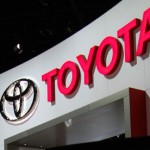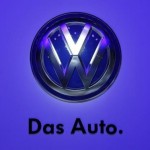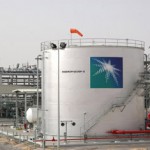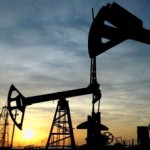Toyota’s Lentz Seeks Fuel Cell Sedan Supply Boost to U.S.

Toyota Motor Corp. (7203)’s North American chief, preparing to sell Camry-sized hydrogen sedans next year, said he’s “bullish” about advances in the company’s fuel cell system and wants more U.S. supply of the Japan-built cars.
Toyota, the world’s largest seller of hybrid-electric autos, is to sell the as-yet unnamed four-door model in California in 2015, as well as in Japan and Europe. Its performance, packaging and other attributes will generate demand for the car, North American Chief Executive Officer Jim Lentz said yesterday, without providing a sales goal.
“After we’ve seen the product, understand its range, its driving dynamics, its refueling, we’re a lot more bullish than Japan — probably about fivefold more bullish,” Lentz said in an interview at the Wall Street Journal’s ECO:nomics conference in Santa Barbara, California. “It’s just a question of how many can be produced now.”
Toyota, Hyundai Motor Co. (005380) and Honda Motor Co. are readying new hydrogen cars — due this year and next — that the companies say match the zero-emissions of battery-powered vehicles and offer greater driving range and faster refueling. California, with the toughest U.S. emissions rules and plans for a statewide network of hydrogen fuel stations, will be the primary battleground for the vehicles.
The Toyota City, Japan-based carmaker, which has been developing hydrogen vehicles since the early 1990s, has said that its car will have about 300 miles (483 kilometers) of driving range per fueling. While the car won’t be cheap the current cost to produce a fuel cell vehicle has fallen by 95 percent from about $1 million each a decade ago, Lentz said at the conference, without elaborating.
Market Acceptance
Fuel cell autos are similar to battery-only models such as Nissan Motor Co. (7201)’s Leaf hatchback and Tesla Motors Inc.’s Model S sedan in avoiding tailpipe pollution from burning gasoline.
Battery models carry electricity in their lithium-ion battery packs while fuel cell vehicles make electricity on board in a chemical reaction between hydrogen and oxygen, with only water vapor as a byproduct. While hydrogen vehicles have a range comparable to gasoline vehicles and need only a few minutes to refuel — compared with hours for most battery autos — there are few hydrogen pumps currently open to the public.
California has said it will provide as much as $200 million over the next decade to help open stations across the most populous U.S. state.
Fuel cell autos will need three to five years to build a market presence in California, and at least a decade to get to U.S. sales of half a million or more annually, Lentz said. Still, advances in the technology and an industrywide push, with Daimler AG, General Motors Co. and Nissan also planning to sell fuel cell models, may help the vehicles get a market foothold faster than hybrids, according to Lentz.
“Their acceptance could get off to a quicker start than the hybrids did,” he said. “I think you’re going to see a lot more marketing of the concept of fuel cell much sooner than you did for hybrids, because basically the whole industry is behind it.”
Toyota’s U.S. sales unit is based in Torrance, California.
Source: bloomberg




























